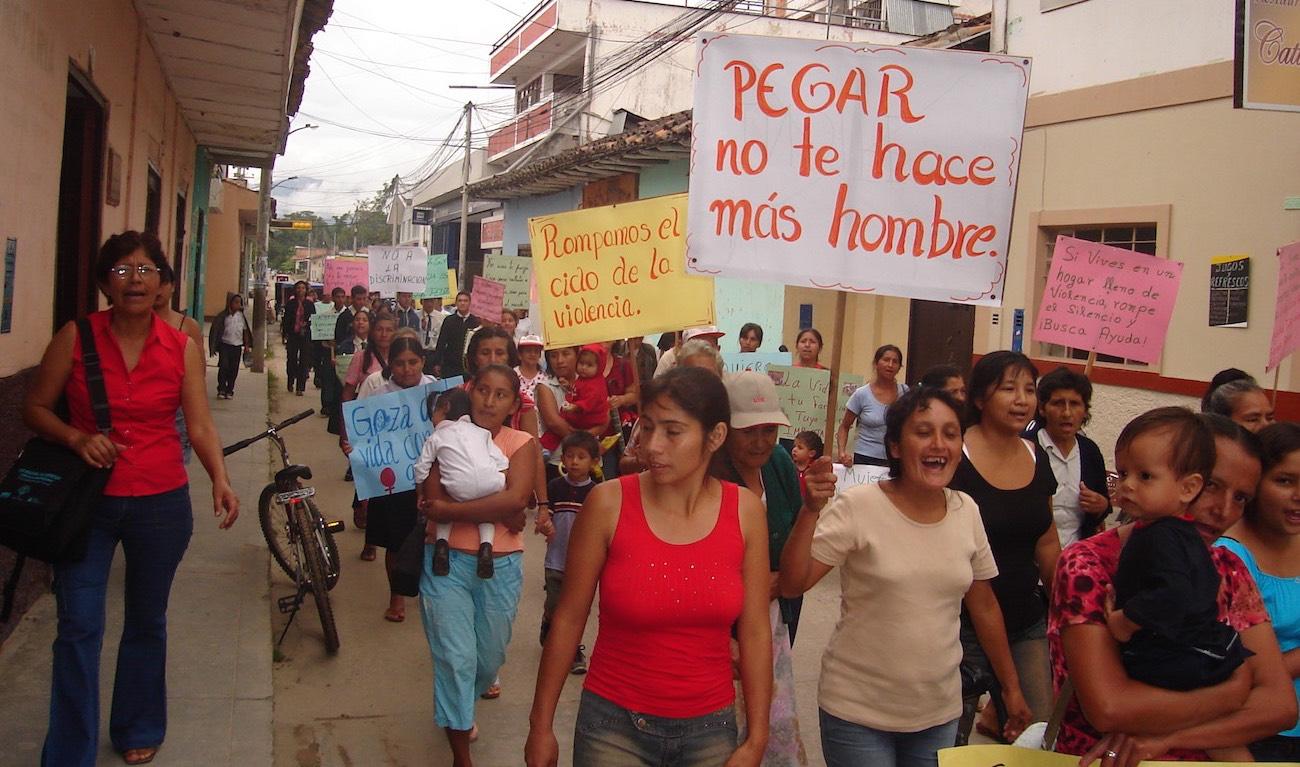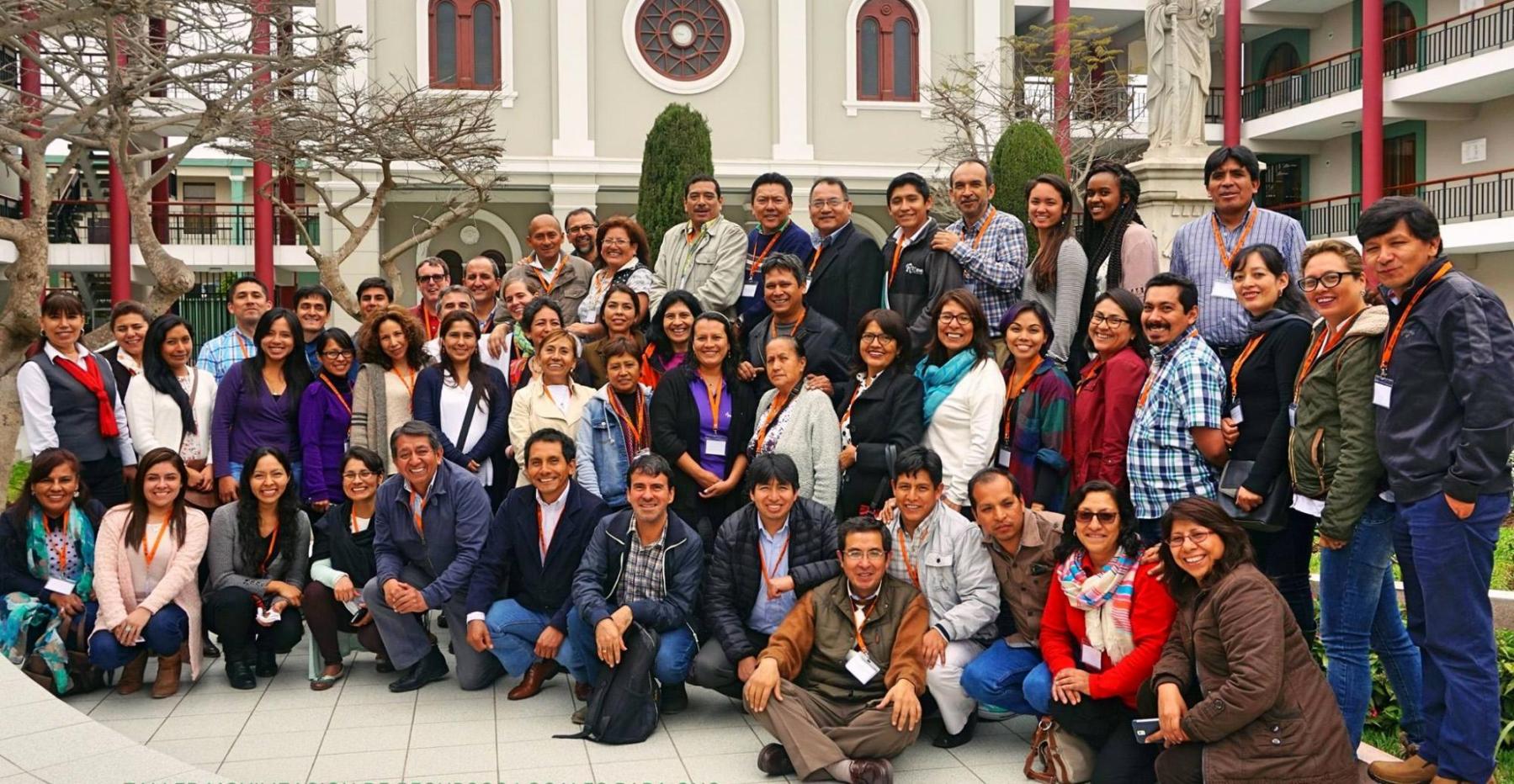Latin America is an extraordinary region. The beauty and diversity of its cultures, geography, biodiversity, and histories reveal creative, hardworking, and resilient peoples. Nevertheless, terrible acts of injustice and abuse of power also occur against people and communities who suffer marginalization. Extreme poverty continues to be high, affecting millions of people. We lament that discrimination based on ethnicity, skin color, gender, socioeconomic class and language contribute to reducing the opportunities of many of our sisters and brothers to enjoy a life full of dignity and free from violence.
Despite the hard realities, we are grateful for the fruit of this work over almost three decades. We have seen firsthand God’s faithfulness when people pursue a just peace as God desires.
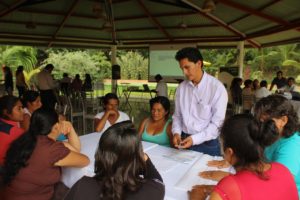
Peacebuilding
At our core we are a family of peacebuilding organizations. Peace and Hope national offices facilitate projects that contribute to the pursuit of shalom–a wholeness, restoration, justice and wellbeing. The work of peacebuilding varies based on the context of each location, and the challenges in that place. We work for peace in the face of everything from armed conflict and terrorism, to gang violence, to the common everyday violence that people in poverty experience, such as rape and abuse. We are committed to working towards a peace that is deeper than a lack of violence.
We work for a just peace so that individuals, families and communities can be free from the fear of violence, AND are also able to enjoy the fullness of life and the fundamental rights that every human being deserves. Below are some of the ways Peace and Hope is dedicated to cultivating that type of peace:

Working Against Violence
Peace and Hope has played a key role in responding to internal armed conflicts, particularly in Peru and Colombia, and continues to bring that expertise to tragic situations. In the aftermath of such atrocities, Peace and Hope works to prevent violence and to support survivors and family members, as well as communities and public authorities, in the process of seeking justice, healing, and restoration.
In addition to armed conflict, there is ongoing violence against those in poverty that Peace and Hope works to confront and prevent. High rates of sexual and gender violence, trafficking, labor exploitation, and discrimination against those with a disability–often times because they don’t have the resources to ensure the police and legal system works on their behalf. Certain risk factors such as weak or unavailable public institutions and services in poor communities, as well as cultural patterns (such as machismo), legitimize and even justify violence.
We facilitate projects that focus on groups who are particularly vulnerable: children and youth, women, indigenous communities, and those who have disabilities. The trauma has a deep impact on survivors if violence, but we have seen firsthand the transformation that can take place. There is good reason to hold hope and continue to work towards restoration and wholeness.
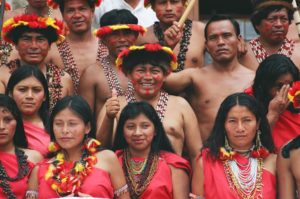
Indigenous Communities
The history of people and nations throughout the Americas inflicting injustice on indigenous people groups is long and full of pain. Latin America is home to approximately 500 different ethnic groups with much diversity and beauty, yet we continue to see many ways in which the indigenous suffer due to unchecked greed, power, and unjust laws, policies and cultural norms.
The stealing of land is a phenomenon that affects both the Amazon and farming communities of the Andes. The loss of common land directly affects migration, especially of youth towards the cities, and breaks down the family and community. Peace and Hope carries out projects to defend the land rights of indigenous communities, and through th. Peace and Hope also provides bilingual education in the southern Andes of Peru, so that Quechua children are able to learn in both Quechua and Spanish, a key model to make education accessible for many Indigenous in Latin America.
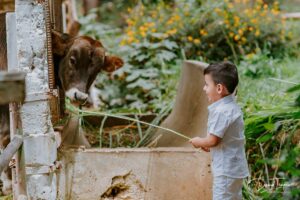
Environmental Justice
Through decades of work, we have witnessed that just as a gang or armed group can deter peace and justice, so too can the destruction and misuse of natural resources. Peace and Hope facilitates several projects working to take care of our natural environment, to conserve key natural resources such as water and forest, and the use of regenerative agricultural practices. Those impacted most harshly by environmental issues are people in poverty, particularly in the Global South, and we are committed to walking alongside them in concrete ways to care for creation.
Climate change is a global transformation that impacts every part of life for every town. The impact on the Amazon, the Andes, and the Pacific coastal desert has real and harsh consequences for our people, and we see the changes around us taking place at a rapid pace. Not only do we work to care for creation, but we also work for justice for those most impacted by the destruction of our natural environment.
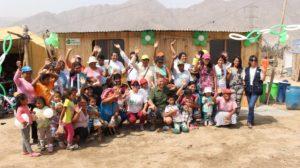
Natural Disasters & Crisis
When disaster strikes, the communities we live and work in often experience the worst, because disaster magnifies the disparity that already exists for people and communities in poverty. Because Peace and Hope was founded in Latin America, by Latin Americans, over the years we quite naturally respond to natural disasters and other urgent crises such as the pandemic or economic and political crisis. These are our communities, our churches, our towns and cities, our countries, and wherever our community is hurting, we seek to be there to respond in love.
Currently, the situation in Venezuela has brought those fleeing the crisis to our doorstep throughout the Americas. We work to respond in love, welcoming and empowering our new neighbors who have faced so much heartache and pain.
Not only do we respond to natural disasters, but we also work to prevent such calamity, helping communities with mitigation and adaptation to face the realities in our region of the world due to the climate changes already impacting us, and to be more prepared for future natural disasters.
Local teams are actively:
* Providing free and competent legal representation as well as psychological and educational support to survivors of violence.
* Providing support for women and children who are survivors of sexual violence and abuse.
* Preventing all kinds of violence against women and children.
* Providing educational support for Deaf children in Moyobamba, Peru.
*Supporting the peace process in Colombia.
*Cultivating Indigenous churches that have a strong self-identity, rooting their Christian practices in their own contexts and working as agents of change in the Creator’s work of reconciling all things.
*Responding in love to migrants and refugees due to the crisis in Venezuela, meeting basic needs for the most vulnerable.
* Equipping parents and teachers to support the healthy development of children with different abilities.
* Training indigenous leaders to be able to defend the rights of communities that have been historically relegated.
*Caring for Creation through a variety of projects, including our organic farm, modeling and equipping communities for sustainable agricultural practices in the Central Highlands of the Andes as well as in the Amazon.
*Providing training, workshops, and support for churches and communities to be equipped to respond to violence in their communities.
* Empowering local communities to be prepared to respond to natural disasters, and in this current season, to respond to crisis needs stemming from the pandemic.
Thanks to your partnership with us, as Peace and Hope continues to expand throughout Latin America.

